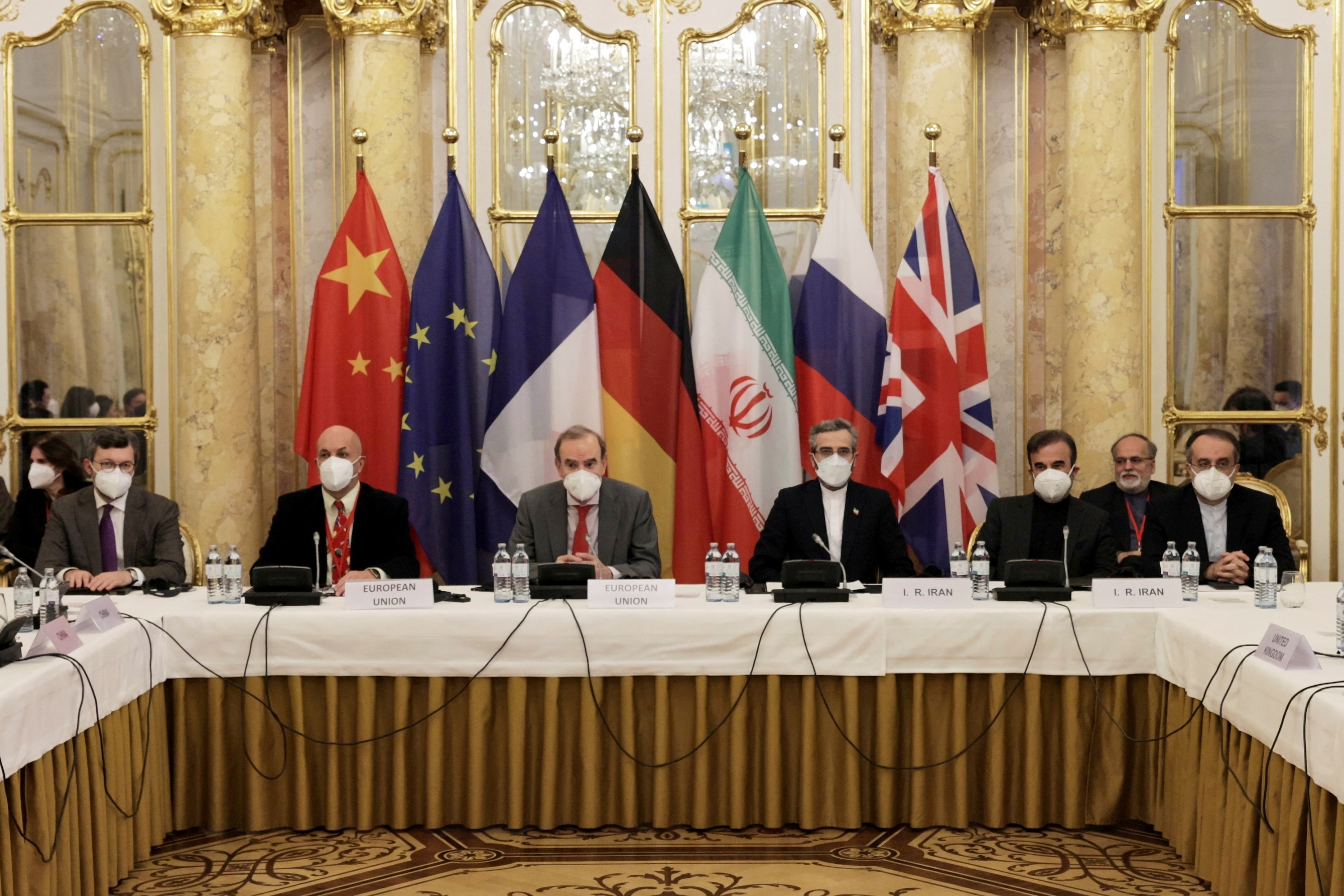
Tehran, Iran – Five years ago today, President Donald Trump held up a signed executive order for the cameras at the White House, announcing a unilateral withdrawal from a nuclear deal the United States had signed in 2015 with Iran and world powers.
Despite years of efforts, and after many ups and downs, the landmark accord known formally as the Joint Comprehensive Plan of Action (JCPOA), has not been restored, contributing to rising tensions across the region.
The Trump administration’s many designations of Iranian entities and institutions, specifically aimed at making it difficult for his successor Joe Biden to undo his damage, worked in tandem with a changing political climate to prevent a restored JCPOA.
The then-US president had argued that the deal was not doing enough to permanently keep Tehran from acquiring a nuclear weapon, and Trump rejoiced as he undid one of the most important foreign policy achievements of his predecessor Barack Obama.
His administration set out a dozen conditions to renegotiate a deal more favourable to Washington with Tehran, which would effectively amount to a total political capitulation by Iran.

Unsurprisingly, Iran’s Supreme Leader Ayatollah Ali Khamenei chose a path of “resistance” in the face of Trump, whose corpse he said “will nourish worms and rodents” as he will take his perceived wish to topple the Islamic Republic to the grave.
The so-called “maximum pressure” policy of the Trump administration, which included imposing the harshest-ever sanctions on Iran, has since significantly affected the Iranian economy. Biden administration has continued with his predecessor’s policies on Iran despite denouncing them initially.
Runaway inflation continues to squeeze average Iranians and the national currency has been on a downward spiral, even as Tehran has gradually boosted its oil sales despite the sanctions.
Iranian leaders, however, have not surrendered their doctrine of defying the US, and attacks by pro-Iran groups on US interests across the region have only multiplied in recent years, according to Washington.
The US assassination of Iran’s top general Qassem Soleimani in Iraq in early 2020 took tensions to new heights, with Tehran and Washington teetering on the edge of war.
Most recently, Iran seized two oil tankers in the Strait of Hormuz and the Gulf of Oman in the past two weeks, which Western media said came in response to a US seizure of another tanker carrying Iranian oil.
Meanwhile, President Ebrahim Raisi had the first trip by an Iranian president to Syria in 13 years last week, with Iranian state media hailing it as a “strategic victory” for Iran in the face of US defeats.

JCPOA in the region
Since its inception, Israel has been the JCPOA’s biggest foe, incessantly lobbying Washington to declare the deal dead.
Prime Minister Benjamin Netanyahu praised Trump after his reneging on the deal, and Tel Aviv has repeatedly pushed against efforts by other signatories – namely China, Russia, France, Germany and the United Kingdom – to restore the accord through now-stalled talks that began in 2021.
Israel has also warned it will attack Iran to stop it from acquiring a bomb, and Biden’s national security adviser, Jake Sullivan, last week said the US president is willing to recognise “Israel’s freedom of action” if necessary.
The comment drew ire in Tehran, prompting security chief Ali Shamkhani to deem it a US admission of responsibility for Israeli attacks on Iranian facilities and nuclear scientists.
Elsewhere in the Middle East, many Arab states, led by Saudi Arabia, also cheered for Trump as they expressed concern over Tehran’s nuclear programme – which it maintains is strictly peaceful – and its support for proxies across the region.
But as Tehran also ramped up the pressure, and the US gradually saw its role in the region diminished, Arab leaders recognised a need for change.
The 2019 attack on Saudi oil facilities by the Iran-aligned Houthis in Yemen, and the subsequent non-response from Washington, appeared to be a turning point for Arab nations.
After two years of direct talks, Iran and Saudi Arabia agreed in March to restore diplomatic relations in a deal mediated by China, and embassies are expected to be reopened this week.
More challenges ahead
At least for now, JCPOA stakeholders appear to be content with maintaining the status quo while managing tensions.
The passing of two Western-introduced resolutions last year at the board of the International Atomic Energy Agency (IAEA) that censured Iran – and Tehran’s response – and a deadlock in talks since September have not prompted any side to declare the JCPOA dead in the absence of a better alternative for the accord.
The deal’s fate, however, promises to produce more confrontations between Tehran and the West in the coming months.
The Western parties have already reportedly warned Iran that if it further increases its enrichment of uranium to levels that could be potentially used to produce a bomb, it will prompt them to activate the deal’s so-called “snapback” mechanism that will automatically reinstate the United Nations sanctions on Iran.

Iran and the IAEA reached an agreement in Tehran in March to increase cooperation, which could potentially prevent another resolution at the upcoming board meeting of the nuclear watchdog in June.
Another major deadline arrives in October when the JCPOA is set to lift a number of restrictions on Iran’s research, development and production of long-range missiles and drones.
With Israel also pushing for snapback and the West accusing Tehran of selling armed drones to Russia for the war in Ukraine, stakeholders will have their work cut out for them in managing tensions during the coming months.







